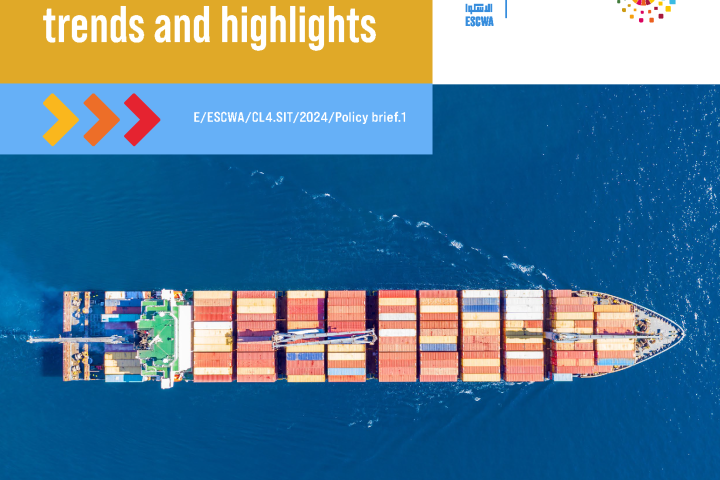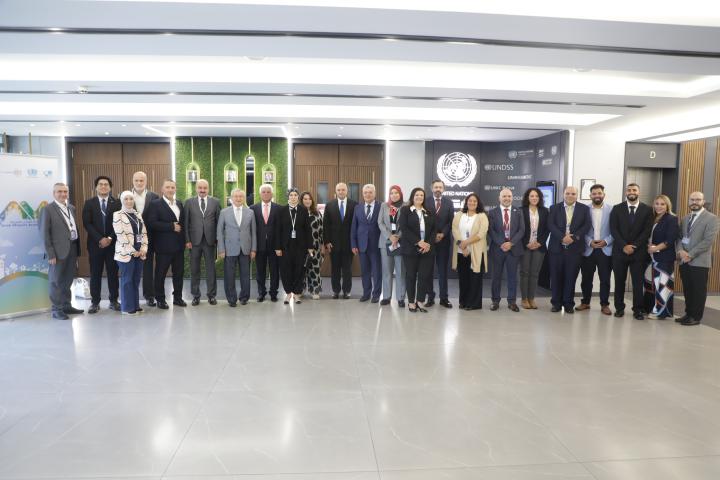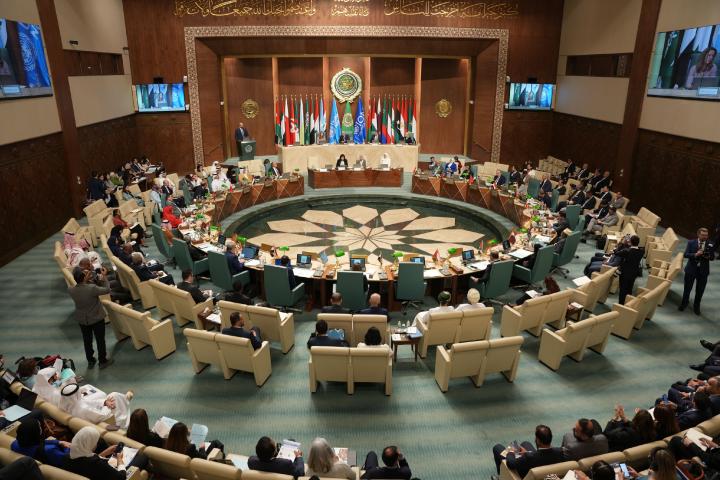Beirut, 22 September (Communication and Information Unit)—A crowd of ministers, high-level dignitaries and governmental and non-governmental experts will gather in Beirut next week to participate in the “High-Level Conference on Climate Impact Assessment and Adaptation in the Arab Region”, which ESCWA is co-organizing with 11 institutions under the auspices of Lebanese President of the Council of Ministers Saad Hariri, from 26 to 28 September at the Hilton Sin El Fil Hotel.
The meeting, which opens at 10:00 am next Tuesday, aims to promote dialogue on the impacts of climate change on the Arab region and its freshwater resources, and seek to bridge the climate change and disaster risk reduction communities by presenting the findings of the Regional Initiative for the Assessment of Climate Change Impacts on Water Resources and Socio-Economic Vulnerability in the Arab Region (RICCAR) supported work on disaster loss databases and the establishment of an Arab Climate Outlook Forum (ArabCOF). This will be complemented by the launching of training manuals and discussion of innovative pilot projects and identified best practices aimed at advancing climate change adaptation in Arab States.
Highlights
The meeting shall witness several notable events: the launching of the Arab Report on Climate Change Assessment, the RICCAR Publications Series, a report on disaster losses data and linkages with the impact of climate change in the Arab region, and the establishment of the ArabCOF. The RICCAR outputs are complemented by technical materials and training manuals focused on adaptation to climate change, which pose a water challenge in the region, which suffers from water scarcity as is widely recognized. In this regard, the meeting will provide a Training manual on adaptation to climate change through the application of IWRM tools in the Arab region and the training of trainer’s manual on integrating climate issues.
Background.
The Regional Initiative for the Assessment of Climate Change Impacts on Water Resources and Socio-Economic Vulnerability in the Arab Region (RICCAR) is the outcome of the first Arab Ministerial Declaration on Climate Change (2007), which recognized the potential impacts that climate change may have on development in the Arab region. The Declaration called for a comprehensive assessment of the potential impacts of climate change on the most vulnerable developing countries, including Arab States, as well as the need to identify priorities and implement climate change adaptation and mitigation programs at the national and regional levels.
RICCAR strategically bridges the science-policy interface by building regional capacity and conducting climate change assessments that inform regional priority setting, policy formulation, positioning and decision-making through a highly consultative and cooperative process.
RICCAR is implemented through a collaborative partnership involving 11 partner organizations, namely the League of Arab States, ESCWA, the Arab Center for the Studies of Arid Zones and Dry Lands (ACSAD), the Food and Agriculture Organization of the United Nations (FAO), Deutsche Gesellschaft für International Zusammenarbeit GmBH (GIZ), the Swedish Meteorological and Hydrological Institute (SMHI), the United Nations Environment Programme, the United Nations Educational, Scientific and Cultural Organization (UNESCO) Cairo Office, the United Nations Office for Disaster Risk Reduction (UNISDR), the United Nations University Institute for Water, Environment and Health (UNU-INWEH), and the World Meteorological Organization (WMO). In addition to the resources provided by the partner agencies, funding is provided by the Swedish International Development Cooperation Agency (Sida) and the German Federal Ministry for Economic Cooperation and Development (BMZ), which financially support RICCAR through the Adaptation to Climate Change in the Water Sector in the MENA Region (ACCWaM) project.
RICCAR is structured around four pillars of work consisting of: (a) a baseline review and set-up of a regional knowledge hub; (b) an integrated assessment consisting of impact assessment and vulnerability assessment components; (c) awareness raising and information dissemination; and (d) capacity building and institutional strengthening. ESCWA served as coordinator of the regional initiative, and provides regular reporting to the Arab Ministerial Water Council and Arab Permanent Committee on Meteorology on RICCAR-related activities.
* *** *
For more information:
Nabil Abu-Dargham (Head of ECIU) +961 70-993-144 dargham@un.org
Ms Mirna Mahfouz: +961-70-872-372 mahfouz@un.org
Haidar Fahs +961-70-079-021 haydar.fahs@un.org
For more ESCWA news, please visit:
Website: www.unescwa.org Facebook: www.facebook.com/unescwa
Twitter: @ESCWACIU



